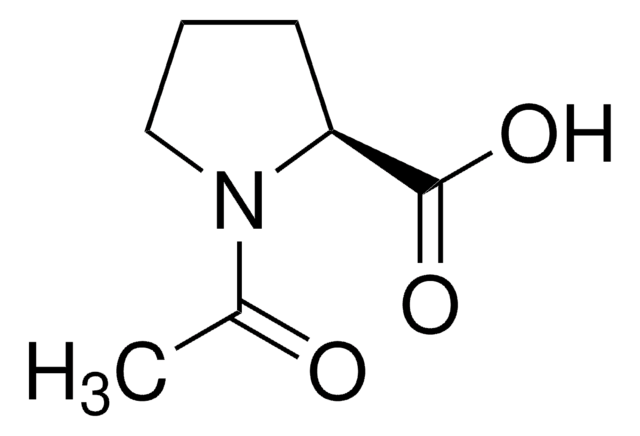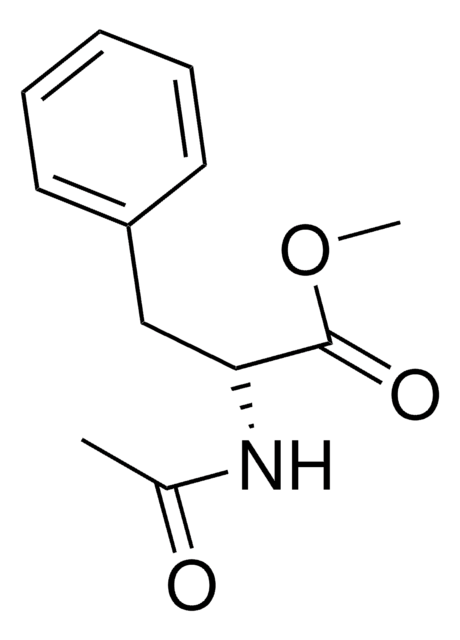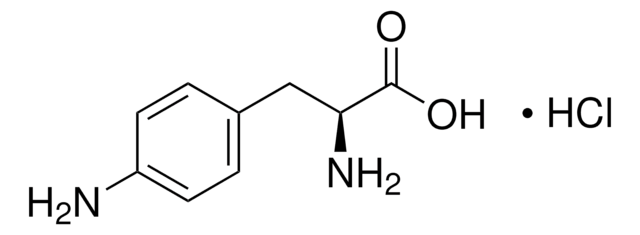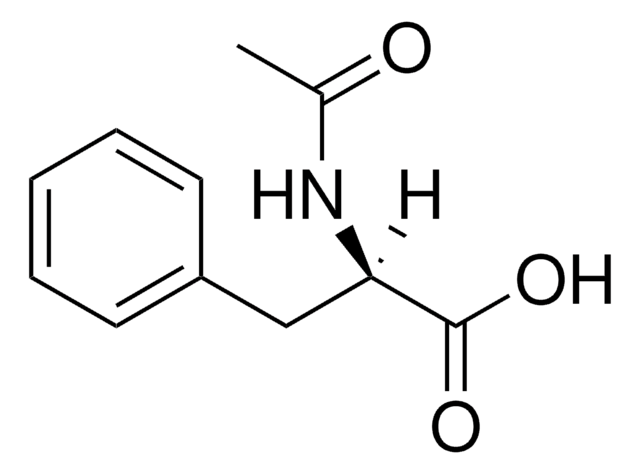857459
N-Acetyl-L-phenylalanine
ReagentPlus®, 99%
Synonym(s):
(+)-N-Acetylphenylalanine, (S)-2-Acetamido-3-phenylpropanoic acid
About This Item
Recommended Products
Quality Level
product line
ReagentPlus®
Assay
99%
form
powder
optical activity
[α]22/D +40.0°, c = 1 in methanol
reaction suitability
reaction type: C-H Activation
reaction type: solution phase peptide synthesis
reagent type: ligand
reaction type: Peptide Synthesis
mp
171-173 °C (lit.)
application(s)
peptide synthesis
functional group
amine
carboxylic acid
SMILES string
CC(=O)N[C@@H](Cc1ccccc1)C(O)=O
InChI
1S/C11H13NO3/c1-8(13)12-10(11(14)15)7-9-5-3-2-4-6-9/h2-6,10H,7H2,1H3,(H,12,13)(H,14,15)/t10-/m0/s1
InChI key
CBQJSKKFNMDLON-JTQLQIEISA-N
Looking for similar products? Visit Product Comparison Guide
General description
Application
- N-acetyl phenylalanine methyl ester by esterification reaction with methanol using Mukaiyama′s reagent.
- Acetylaminocyclohexane propanoic acid by rhodium-catalyzed hydrogenation reaction.
Legal Information
Not finding the right product?
Try our Product Selector Tool.
Storage Class Code
11 - Combustible Solids
WGK
WGK 3
Flash Point(F)
Not applicable
Flash Point(C)
Not applicable
Choose from one of the most recent versions:
Already Own This Product?
Find documentation for the products that you have recently purchased in the Document Library.
Customers Also Viewed
Chromatograms
application for HPLCOur team of scientists has experience in all areas of research including Life Science, Material Science, Chemical Synthesis, Chromatography, Analytical and many others.
Contact Technical Service






